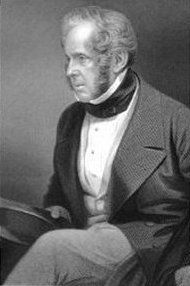Liberal Party (UK)
Liberal Party (UK)
The Liberal Party of the United Kingdom is a political party that played a significant role in British politics from the 19th to the early 20th centuries. It emerged from the Whigs, Radicals, and Peelites, with its official formation often dated to 1859. The party advocated for a range of liberal policies including free trade, civil liberties, and social reforms. It was one of the two dominant parties in the UK, alongside the Conservative Party, until the rise of the Labour Party in the early 20th century.
History[edit | edit source]
The origins of the Liberal Party can be traced back to the Whigs, who were proponents of constitutional monarchy and opposed to absolute rule. The term "Liberal" itself was first used in a political context during the 1820s and became associated with the party by the 1850s. The official formation of the Liberal Party in 1859 marked the union of Whigs, free trade Peelites, and Radicals into a single entity.
Under the leadership of figures such as William Ewart Gladstone, the Liberal Party implemented significant reforms that shaped modern Britain. These included the disestablishment of the Church of Ireland, the introduction of the secret ballot, and the expansion of the electoral franchise. The party was also known for its support of free trade, a stance that was epitomized by the repeal of the Corn Laws in 1846.
Throughout the late 19th and early 20th centuries, the Liberal Party faced challenges from the emerging Labour Party, which sought to represent the working class more directly. The Representation of the People Act 1918, which significantly expanded the franchise, along with internal divisions, particularly over the issue of Irish Home Rule, led to a decline in the party's influence.
Key Policies and Ideologies[edit | edit source]
The Liberal Party was founded on principles of classical liberalism, advocating for individual freedoms, limited government intervention in the economy, and social reform. Key policies included:
- Free trade: The Liberals were staunch supporters of free trade, opposing protectionist tariffs and policies. - Social reform: The party introduced various social reforms aimed at improving living and working conditions, including public health acts and education reforms. - Civil liberties: The Liberals championed civil liberties, including freedom of speech and assembly, and were instrumental in the expansion of the electoral franchise.
Decline and Legacy[edit | edit source]
The early 20th century saw the decline of the Liberal Party as the main opposition to the Conservatives was increasingly represented by the Labour Party. The split over Irish Home Rule and the impact of World War I further weakened the party. By the mid-20th century, the Liberal Party had been reduced to a third-party status, overshadowed by the Conservatives and Labour.
Despite its decline, the Liberal Party's legacy in shaping British politics and society is significant. Many of its reforms laid the groundwork for the modern British state, and its ideals of liberalism continue to influence political discourse. In 1988, the Liberal Party merged with the Social Democratic Party to form the Liberal Democrats, a party that seeks to continue the liberal tradition in UK politics.
See Also[edit | edit source]
Search WikiMD
Ad.Tired of being Overweight? Try W8MD's physician weight loss program.
Semaglutide (Ozempic / Wegovy and Tirzepatide (Mounjaro / Zepbound) available.
Advertise on WikiMD
|
WikiMD's Wellness Encyclopedia |
| Let Food Be Thy Medicine Medicine Thy Food - Hippocrates |
Translate this page: - East Asian
中文,
日本,
한국어,
South Asian
हिन्दी,
தமிழ்,
తెలుగు,
Urdu,
ಕನ್ನಡ,
Southeast Asian
Indonesian,
Vietnamese,
Thai,
မြန်မာဘာသာ,
বাংলা
European
español,
Deutsch,
français,
Greek,
português do Brasil,
polski,
română,
русский,
Nederlands,
norsk,
svenska,
suomi,
Italian
Middle Eastern & African
عربى,
Turkish,
Persian,
Hebrew,
Afrikaans,
isiZulu,
Kiswahili,
Other
Bulgarian,
Hungarian,
Czech,
Swedish,
മലയാളം,
मराठी,
ਪੰਜਾਬੀ,
ગુજરાતી,
Portuguese,
Ukrainian
Medical Disclaimer: WikiMD is not a substitute for professional medical advice. The information on WikiMD is provided as an information resource only, may be incorrect, outdated or misleading, and is not to be used or relied on for any diagnostic or treatment purposes. Please consult your health care provider before making any healthcare decisions or for guidance about a specific medical condition. WikiMD expressly disclaims responsibility, and shall have no liability, for any damages, loss, injury, or liability whatsoever suffered as a result of your reliance on the information contained in this site. By visiting this site you agree to the foregoing terms and conditions, which may from time to time be changed or supplemented by WikiMD. If you do not agree to the foregoing terms and conditions, you should not enter or use this site. See full disclaimer.
Credits:Most images are courtesy of Wikimedia commons, and templates, categories Wikipedia, licensed under CC BY SA or similar.
Contributors: Prab R. Tumpati, MD






